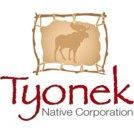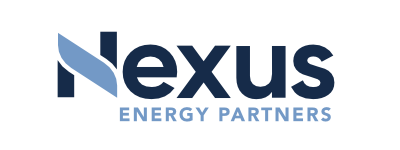Process Improvement Consulting
Unlock efficiency, reduce costs, and optimize workflows with expert process improvement consultants. We help businesses improve quality, streamline operations, and achieve a competitive advantage through our proprietary process maturity framework.
How it works?
Build Mature Business Processes
Discover
We'll conduct stakeholder conversations and review existing business artifacts to understand your unique business and its improvement goals.
Evaluate
We'll process map core organizational processes, clearly define ownership and KPIs, and implement measurement systems to identify optimization opportunities.
Mature
We'll build an actionable plan to mature your processes, improving quality and helping you become more efficient and effective with tangible organizational ROI.
Create a Culture of Continuous Improvement
Optimize Workflows, Drive Efficiency, Achieve Excellence
Whether you’re a small business mapping processes to optimize workflows or a large organization implementing process automation, our Process Improvement Consulting drives cost savings and a culture of continuous improvement.
Using our proprietary Process Maturity Scale and proven process improvement strategies, we focus on key processes to maximize operational performance.
With expertise in Project Management and Lean Six Sigma, we guide organizations through critical initiatives—ERP evaluation, supply chain optimization, or post-acquisition system consolidation—delivering results on time and on budget.
Schedule a quick call to see how our process improvement consultants can help your business thrive.

"We thoroughly enjoyed working with Brewster Consulting Group. They did an excellent job of documenting our current processes and highlighting opportunities for improvement. We now have matured processes with tangible targets and action items to further optimize our workflows and business as a whole."
Director of Operational Analytics

"It is rare that you call a random consulting company off the internet and get what you think you're going to get, but kudos to [Brewster Consulting]. You have exceeded our expectations."
Director of Operations

"I've dealt with hundreds of vendors before. There's only three that I would give a positive recommendation for. Brewster is one of those three."
Director of Health Information Technology
Frequently Asked Questions About Process Improvement Consulting
At Brewster Consulting Group, we often get questions about process improvement consulting services and its impact on businesses. Curious about how to optimize workflows or automate processes? We’re here to demystify the process and show you how building mature processes can streamline your operations and boost your organizational performance!
What is Process Improvement?
Process improvement is the practice of analyzing, documenting, and optimizing business workflows to make them more efficient, cost-effective, and reliable. It focuses on eliminating waste, reducing errors, and creating a culture of continuous improvement.
Through Process Improvement Consulting, businesses use proven strategies like Lean Six Sigma, workflow optimization, and automation to streamline operations, improve quality, and mature critical processes.
What does a Process Improvement Consultant do?
A Process Improvement Consultant helps organizations analyze and optimize workflows to improve efficiency, quality, and cost savings. Using tools like process mapping, Lean Six Sigma, and change management, they uncover inefficiencies and design solutions that drive continuous improvement.
At Brewster Consulting Group, our consultants apply our Process Maturity Framework to assess where your organization stands today and define the steps needed to reach higher levels of performance, scalability, and innovation. This ensures improvements are not just short-term fixes, but part of a long-term strategy for growth.
Why is process improvement important for businesses?
Process improvement is critical because it helps businesses operate more efficiently, reduce costs, improve quality, and adapt to change. By streamlining workflows and eliminating waste, organizations can boost profitability and create a culture of continuous improvement.
Using a structured approach like our Process Maturity Framework, companies can measure their current state, identify gaps, and set a clear roadmap for growth. This ensures that improvements aren’t random fixes, but part of a scalable strategy that drives long-term success.
What tools or software are commonly used for process improvement?
Process improvement relies on a mix of analysis, automation, and collaboration tools to optimize workflows. Common categories include:
- Process Mapping Tools – Lucidchart, Microsoft Visio, Miro (visualize workflows, identify bottlenecks).
- Project & Task Management – Asana, Trello, Microsoft Project (track initiatives and ensure accountability).
- Data & Analytics – Power BI, Tableau, Qlik (measure performance and uncover trends).
- Automation & RPA – UiPath, Automation Anywhere, Power Automate (eliminate repetitive tasks and reduce errors).
- Quality & Lean Six Sigma Tools – Minitab, JMP (statistical analysis for process control).
At Brewster Consulting Group, we align these tools with our Process Maturity Framework to ensure technology supports the right stage of organizational development—moving from basic process visibility to advanced automation and continuous improvement.
How long does it take to complete a process improvement project?
Most process improvement projects take 2 to 6 months, depending on the number of processes, complexity, and resources involved. Smaller projects like mapping and streamlining a single workflow can move quickly, while larger initiatives—such as ERP optimization or supply chain redesign—require more time.
What should I look for when hiring a process improvement consultant?
When hiring a process improvement consultant, look for:
- A Proven Framework – Consultants should use a structured approach, such as our Process Maturity Framework, to assess current performance and guide long-term improvements.
- Lean Six Sigma Credentials – Certification shows expertise in reducing waste, improving quality, and driving measurable results.
- Cross-Industry Experience – A strong consultant has worked across multiple industries and applications, bringing proven best practices that can be adapted to your business.
- Change Management Skills – Success depends on both process design and guiding people through organizational change.
Together, these qualities ensure you’re working with a consultant who delivers not just recommendations, but real, sustainable results.
How do we get started with a process improvement consulting project?
Start by scheduling a call with us to discuss your business concerns and pain points. We will assess your needs and propose tailored process improvement consulting services which will outline the scope of work and engagement terms.
How does pricing and billing work for a Process Improvement Consulting?
Prices vary based on the level of engagement, size, and complexity of your organization.











